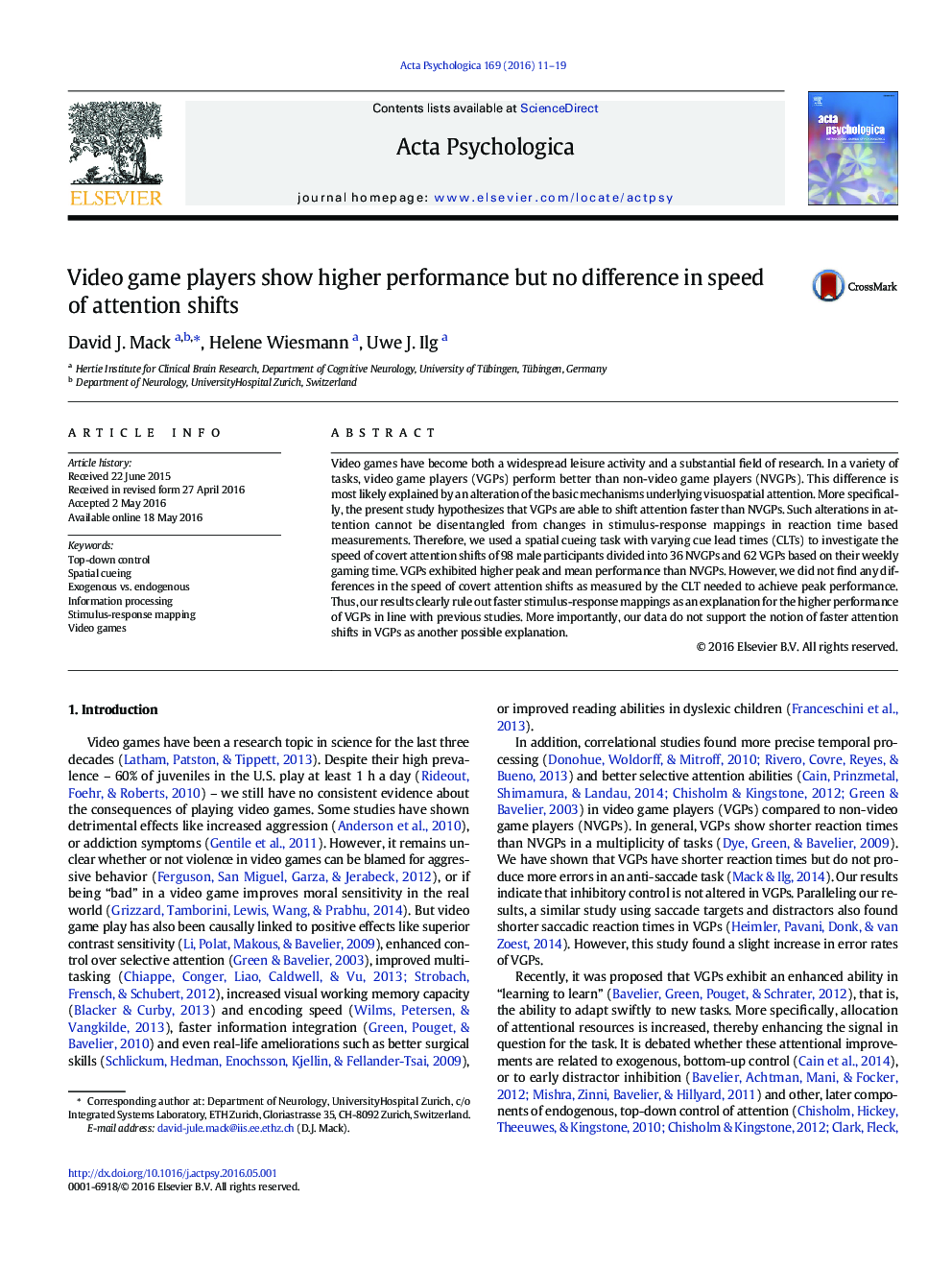| کد مقاله | کد نشریه | سال انتشار | مقاله انگلیسی | نسخه تمام متن |
|---|---|---|---|---|
| 919617 | 1473589 | 2016 | 9 صفحه PDF | دانلود رایگان |
• Video games players show better performance in a spatial cueing task.
• This advantage is not caused by more efficient stimulus-response mappings.
• More importantly, the advantage cannot be explained by faster attention shifts.
Video games have become both a widespread leisure activity and a substantial field of research. In a variety of tasks, video game players (VGPs) perform better than non-video game players (NVGPs). This difference is most likely explained by an alteration of the basic mechanisms underlying visuospatial attention. More specifically, the present study hypothesizes that VGPs are able to shift attention faster than NVGPs. Such alterations in attention cannot be disentangled from changes in stimulus-response mappings in reaction time based measurements. Therefore, we used a spatial cueing task with varying cue lead times (CLTs) to investigate the speed of covert attention shifts of 98 male participants divided into 36 NVGPs and 62 VGPs based on their weekly gaming time. VGPs exhibited higher peak and mean performance than NVGPs. However, we did not find any differences in the speed of covert attention shifts as measured by the CLT needed to achieve peak performance. Thus, our results clearly rule out faster stimulus-response mappings as an explanation for the higher performance of VGPs in line with previous studies. More importantly, our data do not support the notion of faster attention shifts in VGPs as another possible explanation.
Journal: Acta Psychologica - Volume 169, September 2016, Pages 11–19
